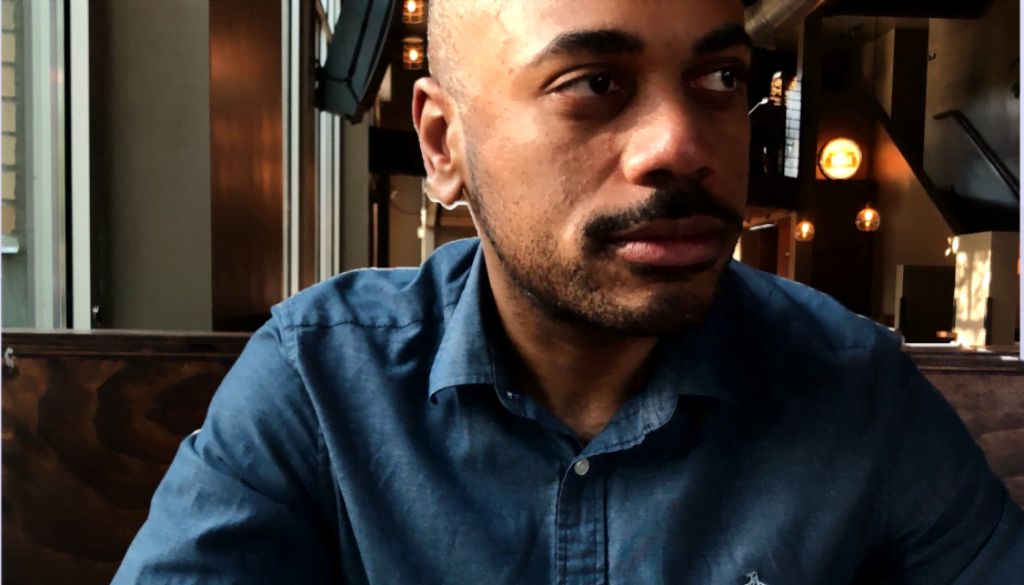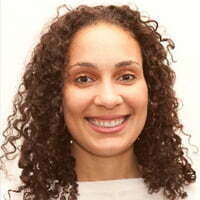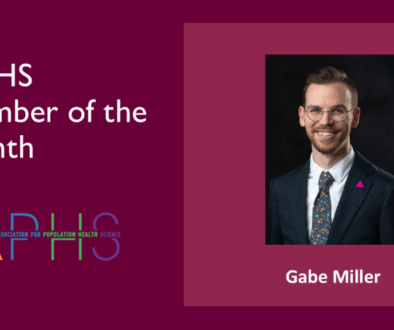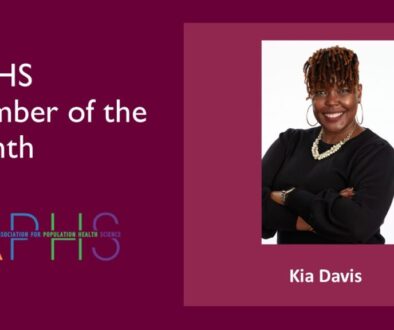Mike is a Postdoctoral Research Fellow at the University of Michigan, Survey Research Center and Institute for Social Research. He is a sociologist and demographer by training. He joined IAPHS in 2016. Learn more about Mike at his website: www.mhesposito.com or follow him on twitter: @mhespo.
Tell us a little about yourself, where are you from, where did you go to graduate school, what makes you jump out of bed each morning?
I’m from Kansas City, Missouri originally. I did my undergraduate degree at the University of Missouri and my PhD at the University of Washington. (You couldn’t pick two more disparate places.) Besides fear of unemployment, the opportunity to “solve problems” gets me out of bed in the morning. Academia, thankfully, supplies a steady-stream of difficult intellectual puzzles that are fun to solve; it keeps me going!
How do you define yourself as a population health professional?
I’m a “heavily-quantitative, race and population health scientist.” I’m a researcher first, behind university walls, but certainly hope that my work is useful for the public!
What disciplines do you engage with and are there disciplines that you would like to engage with?
The scholars that I work with most are demographers, sociologists, and epidemiologists. I’d like to engage more with folks from the humanities; the lateral-thinking and critical-skills that those disciplines stress—and that are sometimes secondary in social-science programs—would, I think, make their scholars valuable, fun collaborators.
Describe a current project/initiative that you are excited about.
A very nascent, exciting project is one with Erika Blacksher, a bioethicist at the University of Washington. I don’t want to talk too much about it yet, given its age, but I think it’s something that reflects a lot of what IAPHS is about; we’re considering building out a project that melds empirical, social-scientific and ethical/philosophical perspectives on recent life-span trends among Whites. I think that it has a chance to be an odd, important piece of work, that you’d only be able to get by working across fields.
Name a population health professional who you admire and why?
Hedwig Lee. Population health work is necessarily interdisciplinary and interdisciplinary work is often hard (i.e., working in groups were even basic definitions of terms vary among members makes any project more complicated.) That Hedy has constantly been able to step into collaborative settings, no matter the intellectual composition/orientation of the group, and make an impact is a feat. I think this is a skill that we’re all trying to figure out as collaborative, transdisciplinary work becomes the norm; that Hedy has seemingly mastered it already is admirable!
How did you hear about IAPHS? Why did you decide to become a member of IAPHS?
I heard about IAPHS through the University of Washington’s Center for Studies in Demography and Ecology. I became a member because 1) all my friends were doing it; and 2) of the large network of population health scholars that it connected me to. (Joining IAPHS has been a great resource for networking!)
Have you attended an IAPHS meeting? If so, what do you like most about these meeting?
Yes! It’s becoming one of my favorite meetings of the year. Last year’s meeting offered up cutting-edge scientific work, public engagement, and a strong sense of community, without compromising on any dimension. The IAPHS meeting is unique for that; I’m looking forward to attending this year!
What would you tell someone who is considering joining IAPHS?
Do it already!
What would you like to see IAPHS do in the future?
Keep growing! IAPHS has already done a great job of incorporating scholars from a mixture of disciplines; continuing to improve on this, and further build out an engaged, intellectually-diverse community of scholars, will make this an even more impressive organization.
Favorite population health relevant book:
– Living and Dying in the US; or The Philadelphia Negro
Favorite population health relevant article(s):
– Montez, Jennifer Karas and Esther M. Friedman. 2015. Educational attainment and adult health: under what conditions is the association causal? Social Science & Medicine 127:1-7.
– Gee, Gilbert C. and Chandra Ford. 2011. Structural racism and health inequities: Old issues, new directions. Du Bois Review 8(1):115–32.
– Bowleg, Lisa. 2012. The problem with the phrase women and minorities: Intersectionality—an important theoretical framework for public health. American Journal of Public Health 102(7):1267-73.
Favorite movie, band, non-fiction, book, etc.:
– (album) If There’s a Hell Below; (movie): Tokyo Drifter; (book): The Changeling






September 24, 2018 @ 10:38 am
Thank you, Mike for being the first member of the month profiled for IAPHS!